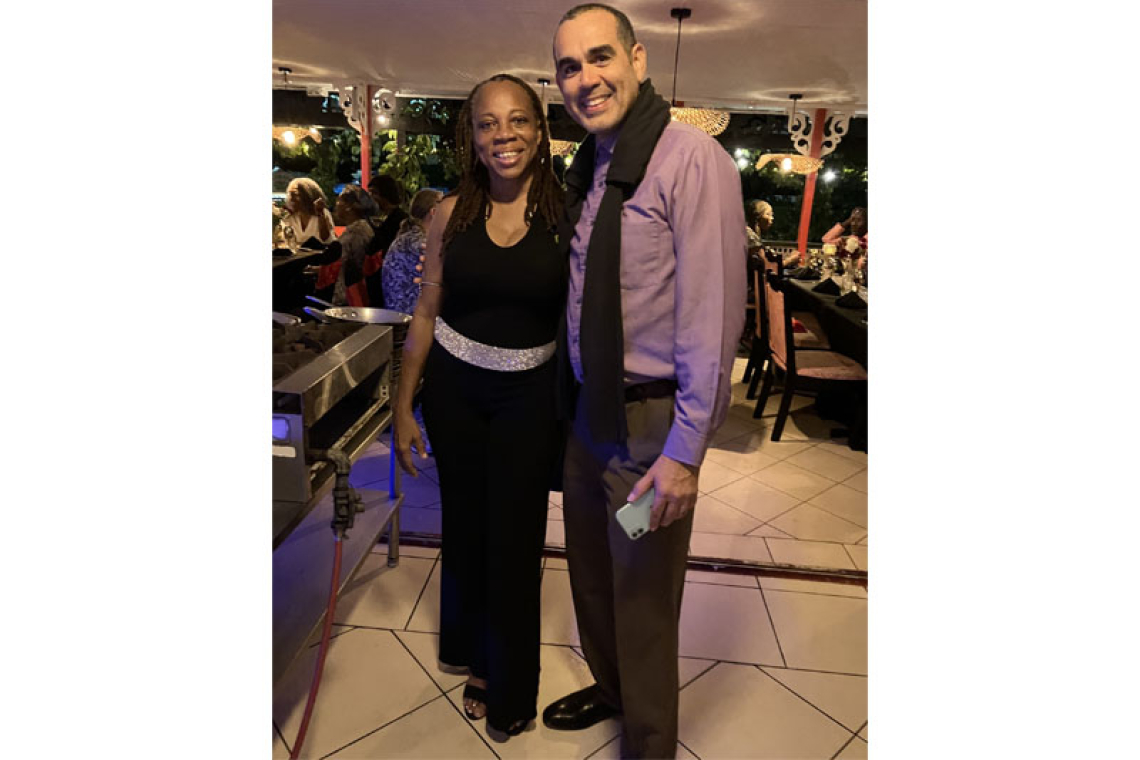New Caribbean Studies Association (CSA) President Dr. Rhoda Arrindell (left) and new CSA Vice President Dr. Raymond Laureano Ortiz (right) at the CSA conference closing gala in St. Lucia.
PHILIPSBURG--Local linguist, educator and author Dr. Rhoda Arrindell is now the President of the Caribbean Studies Association (CSA), having formally took over the post from Okama Ekpe Brook at the closing gala of the association’s annual conference in St. Lucia last Friday. Dr. Arrindell will serve as President from 2024 to 2025.
The conference, revolving around CSA’s 50th anniversary, was held at Harbor Club in St. Lucia from June 3-7.
The 376 conference attendees participated in scholarly presentations, panels, plenaries and round table discussions, said Dr. Arrindell. There were also movie screenings, a cultural evening and island tours.
Online voting opened for the post of Vice President and three positions on the Executive Committee before the conference started. In-person voting closed on the conference’s third day, and results were announced on the fourth day at the annual general meeting, according to CSA.
Dr. Raymond Laureano Ortiz was elected to the vice presidency, while Dr. Donna Hope, Dr. Oneil Hall, and Dr. Margaret Shrimpton will join returning Executive Council members Dr. Geneve Phillip-Durham, Dr. Rita Keresztesi, Dr. Maya Freeman and Meagan Sylvester.
“I have already started to assemble a team of mentors, as well as seasoned and younger members, joined by a St. Martin organising committee to assist in the planning for next year’s CSA conference in St. Martin [from – Ed.] June 1-8,” said Dr. Arrindell.
The theme of the 2025 conference is, “Reparations: Resistance, Resilience, Reproduction, and Rehabilitation”.
The new president said next year’s conference will “showcase the best of St. Martin in all aspects, woven into the scholarly presentations.”
The CSA is an independent professional organisation aimed at promoting Caribbean studies from a multidisciplinary and multicultural point of view. Founded in 1974, the organisation has grown to more than 1,100 members, scholars and practitioners working on the Caribbean region, including Central America and the Caribbean coast of South America.







